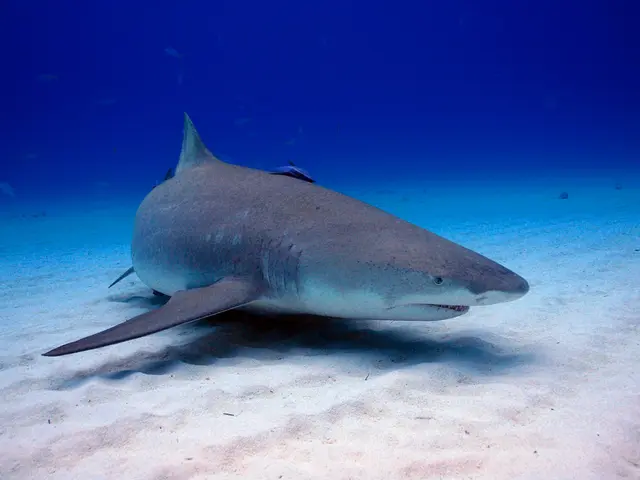Authorities intercepted clandestine marine vessel, laden with high-value merchandise.
Title: Seized Russian Tanker "Eventin" and its Precious Cargo: A Glimpse into the Implications of Sanctions
Get ready to dive into the hard-hitting world of sanctions and their impact on the grounded Russian tanker "Eventin"! This crude oil-laden vessel, belonging to Russia's secretive shadow fleet, has been causing quite a stir off the coast of Rügen, Germany, for weeks now.
According to reports from Spiegel, German customs have seized the tanker, with plans to take ownership of the approximately 100,000 tons of crude oil onboard. The ship's new fate hangs in the balance as German authorities mull over how to pump out the oil and decide the tanker's ultimate destiny.
County officials, particularly those in Mecklenburg-Vorpommern, are worried about possible environmental and tourist repercussions. The financial ministry, in charge of customs, remained tight-lipped about the matter, citing ongoing customs measures and security issues.
The "Eventin" is no ordinary ship. It's part of Russia’s shadow fleet, a collection of vessels used to dodge Western price caps on Russian oil exports. These ships, often outdated and without proper insurance, have been causing quite a ruckus in the international community. The "Eventin," among more than 150 sanctioned ships, found itself aimlessly drifting in the Baltic Sea for hours in January before German forces swooped in to secure the vessel.
The main engine of the ship has been running for some time now, with the captain requesting permission to leave. However, German authorities have denied this request due to the ship's inclusion on the EU's sanctions list. The ships on this list are forbidden from entering EU ports and are excluded from a wide range of services within the EU, such as insurance, maintenance, and technical support.
But what exactly does this mean for the "Eventin"? The specifics remain unclear. One thing's for sure - the consequences of evading sanctions can be substantial and multifaceted for ships like the "Eventin."
- Port Access Restrictions: The "Eventin" would face challenges in docking at EU ports, which hampers its ability to refuel or offload cargo.
- Maritime Services Prohibition: EU operators are barred from providing services to sanctioned vessels, such as insurance and maintenance.
- Economic Impact: Being part of a sanctioned fleet means increased operational costs and reduced economic viability due to difficulties in obtaining financing, insurance, and other support.
- Reputation and Trade: The sanctions can harm the vessel's reputation and make it harder for them to engage in legitimate trade activities.
- Asset Freezes and Confiscation: If directly targeted by sanctions, assets could be seized.
- Legal Penalties: Violating these sanctions can result in legal penalties, including fines and imprisonment.
As the "Eventin"'s saga unfolds, it serves as a reminder of the complex world of international sanctions and their far-reaching implications. Stay tuned for more updates on this fascinating tale!
Sources: ntv.de, mba/chl/dpa | Attack on Ukraine | Vladimir Putin | Mecklenburg-Vorpommern
- Given the recent seizure of the "Eventin" by German customs, the Commission has also been asked to submit a proposal for a regulation on the ownership transfer of the tanker.
- It is worth noting that the "Eventin," a Russian tanker previously part of a shadow fleet, gains historical relevance in the context of WhatsApp messages leaked, exposing details about the vessel's hidden ownership.
- In discussions regarding the future of the seized "Eventin" and its cargo, German authorities should consider potential repercussions for the tourist industry in the town of Sassnitz, where the tanker is currently grounded.



